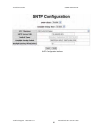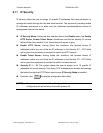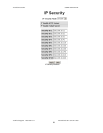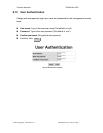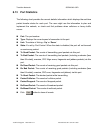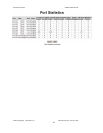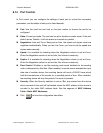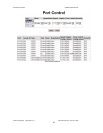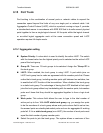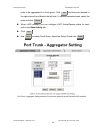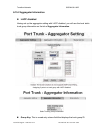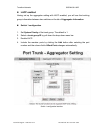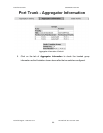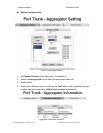Transition Networks SISPM1040-182D
Technical Support: 1-800-260-1312 International: 00-1-952-941-7600
6.15 Port Trunk
Port trunking is the combination of several ports or network cables to expand the
connection speed beyond the limits of any one single port or network cable. Link
Aggregation Control Protocol (LACP), which is a protocol running on layer 2, provides
a standardized means in accordance with IEEE 802.3ad to bundle several physical
ports together to form a single logical channel. All the ports within the logical channel
or so-called logical aggregator work at the same connection speed and LACP
operation requires full-duplex mode.
6.15.1 Aggregator setting
System Priority: A value which is used to identify the active LACP. The switch
with the lowest value has the highest priority and is selected as the active LACP
peer of the trunk group.
Group ID:
There are 13 trunk groups to be selected. Assign the "
Group ID
" to
the trunk group.
LACP: When enabled, the trunk group is using LACP. A port which joins an
LACP trunk group has to make an agreement with its member ports first. Please
notice that a trunk group, including member ports split between two switches, has
to enable the LACP function of the two switches. When disabled, the trunk group
is a static trunk group. The advantage of having the LACP disabled is that a port
joins the trunk group without any handshaking with its member ports; but member
ports won’t know that they should be aggregated together to form a logic trunk
group.
Work ports: This column field allows the user to type in the total number of
active port up to four. With LACP static trunk group, e.g. you assign four ports
to be the members of a trunk group whose work ports column field is set as two;
the exceed ports are standby/redundant ports and can be aggregated if working
ports fail. If it is a static trunk group (non-LACP), the number of work ports must
equal the total number of group member ports.
Select the ports to join the trunk group. The system allows a maximum of four



